7 Oilers-Panthers questions that'll decide Cup champion
The stage is set for an epic Stanley Cup Final between the Western Conference champion Edmonton Oilers and East champion Florida Panthers. Here are seven questions to ponder ahead of Saturday's Game 1 in Sunrise, Florida.
Can McDavid escape Barkov, Forsling?
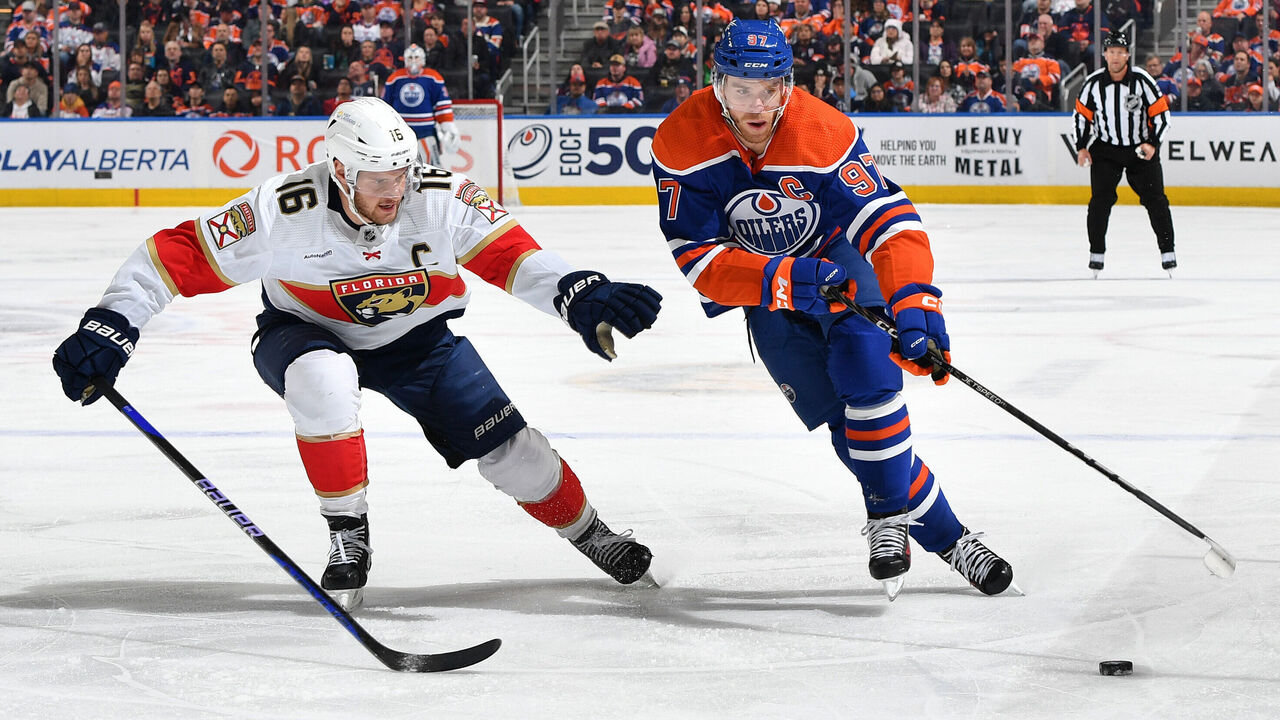
The Kings, Canucks, and Stars all attempted to slow down Connor McDavid, but the best player on the planet prevailed series after series. With 31 points in 18 games, he enters the Cup Final as the Conn Smythe Trophy favorite.
Staring back at him starting Saturday is the shutdown duo of center Aleksander Barkov and defenseman Gustav Forsling, who have owned offensive dynamos throughout the playoffs.
Barkov and Forsling's most common opponents in the first three rounds were Tampa Bay's Nikita Kucherov, Boston's David Pastrnak, and New York's Mika Zibanejad. In other words, no easy shifts. Yet, in the 112 five-on-five minutes Barkov shared the ice with those players, Florida managed to outshoot the opposition 64-31 and tie 3-3 in goals. Forsling's 156 minutes against them yielded even better results: 95-54 in shots and 6-4 in goals.
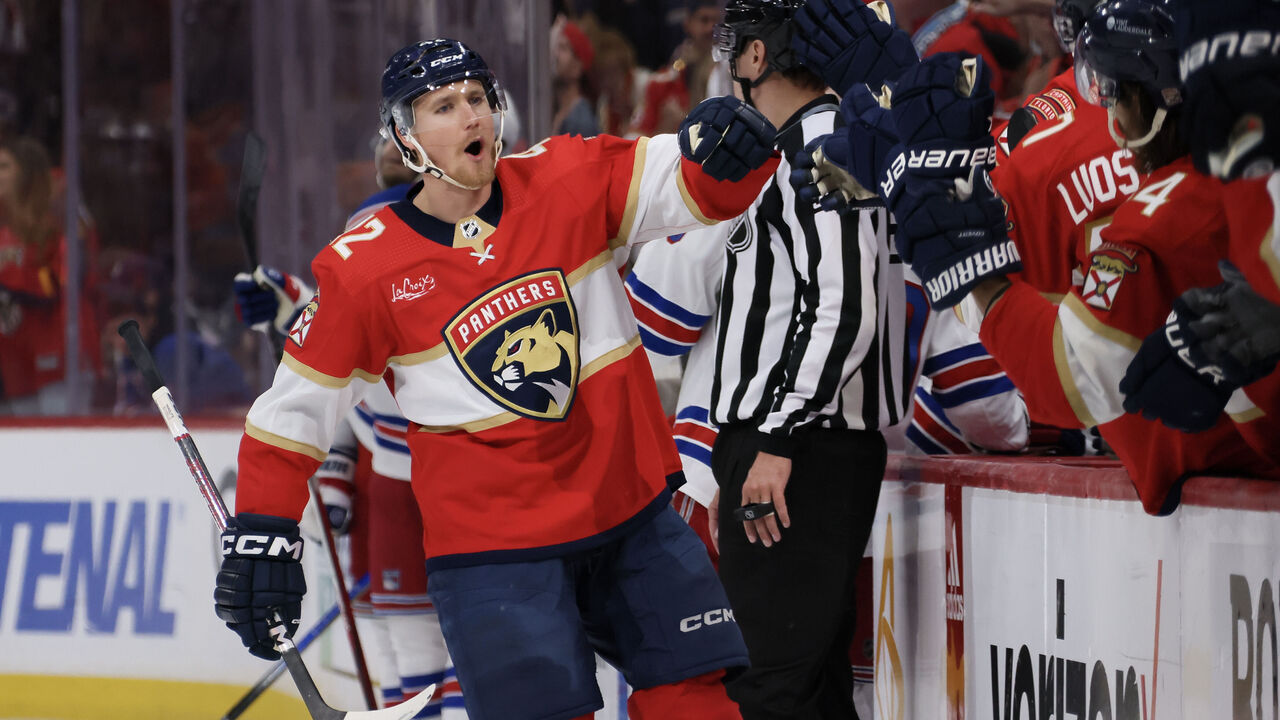
Those are eye-popping numbers considering the sample size and quality of opponents. That said, McDavid's line with Zach Hyman and Ryan Nugent-Hopkins presents a more complex and taxing challenge. If Barkov and Forsling can tie the McDavid line on the scoreboard, Florida likely wins the Cup.
Neither Panther will try to intimidate McDavid with brute physicality. However, Barkov and Forsling can keep up with the Oilers captain through strong skating and stick work. Barkov is elite at knocking pucks out of the air and off opponents' sticks, while Forsling is phenomenal at closing gaps with his feet.
On the flip side, McDavid is capable of making anybody look human.
Will Panthers showcase offensive versatility?
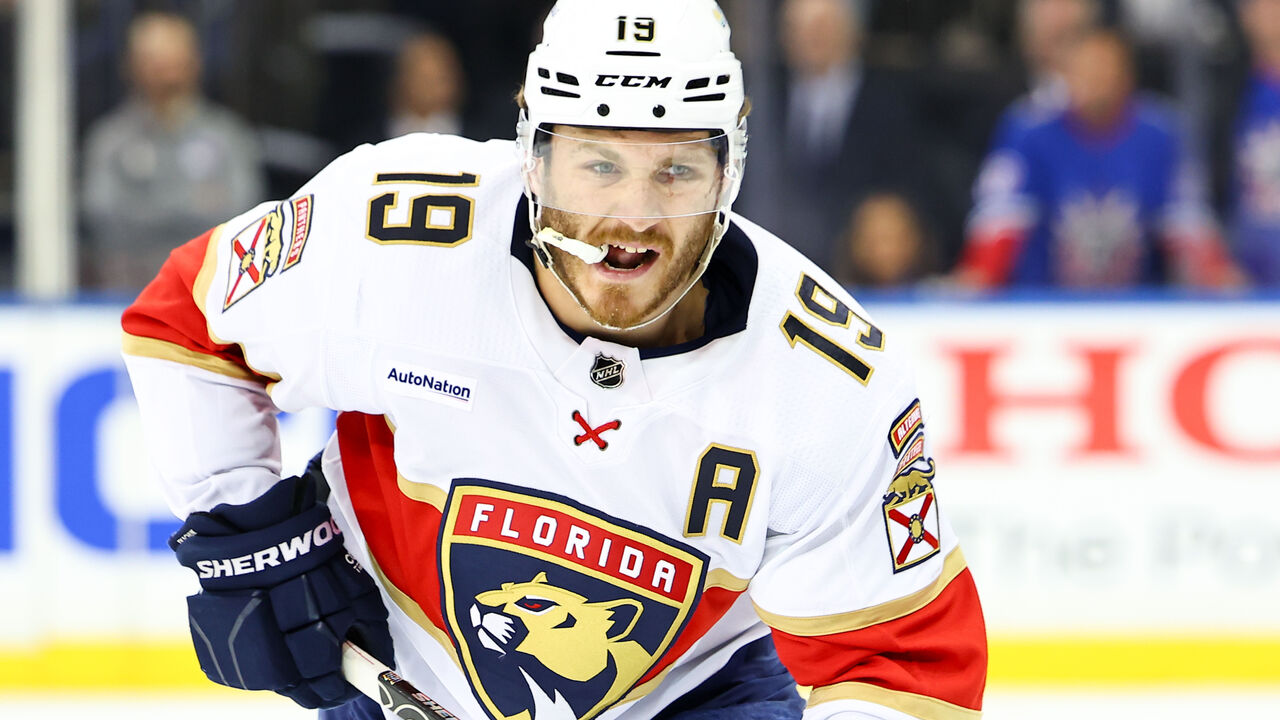
Panthers scorers use many methods to burn teams. They were the only squad to rank in the top three this season in chances generated off forechecks, cycles, and rebounds, per Sportlogiq. Through Round 3, they led all conference finalists in rush chances, displaying yet another strength.
Florida's best forwards are tenacious, rambunctious, and savvy. Smart passes that Barkov, Matthew Tkachuk, Sam Bennett, and Anton Lundell slung toward the net set up big goals in the East final. Sam Reinhart buries all kinds of chances because he hounds the puck and stays ready to fire it.
The Oilers' heightened defensive commitment has led to good results. Compared to the 2023 playoffs, they're surrendering fewer five-on-five goals (2.51 per 60 minutes, down from 2.67), shots on net (24, down from 29.2), and dangerous chances (10.2, down from 11.9), per Natural Stat Trick.
Florida will aim to expose two weak links. Defensemen Cody Ceci and Darnell Nurse struggled mightily together and have been outplayed when paired with other partners.
Can Edmonton overcome disadvantage in net?
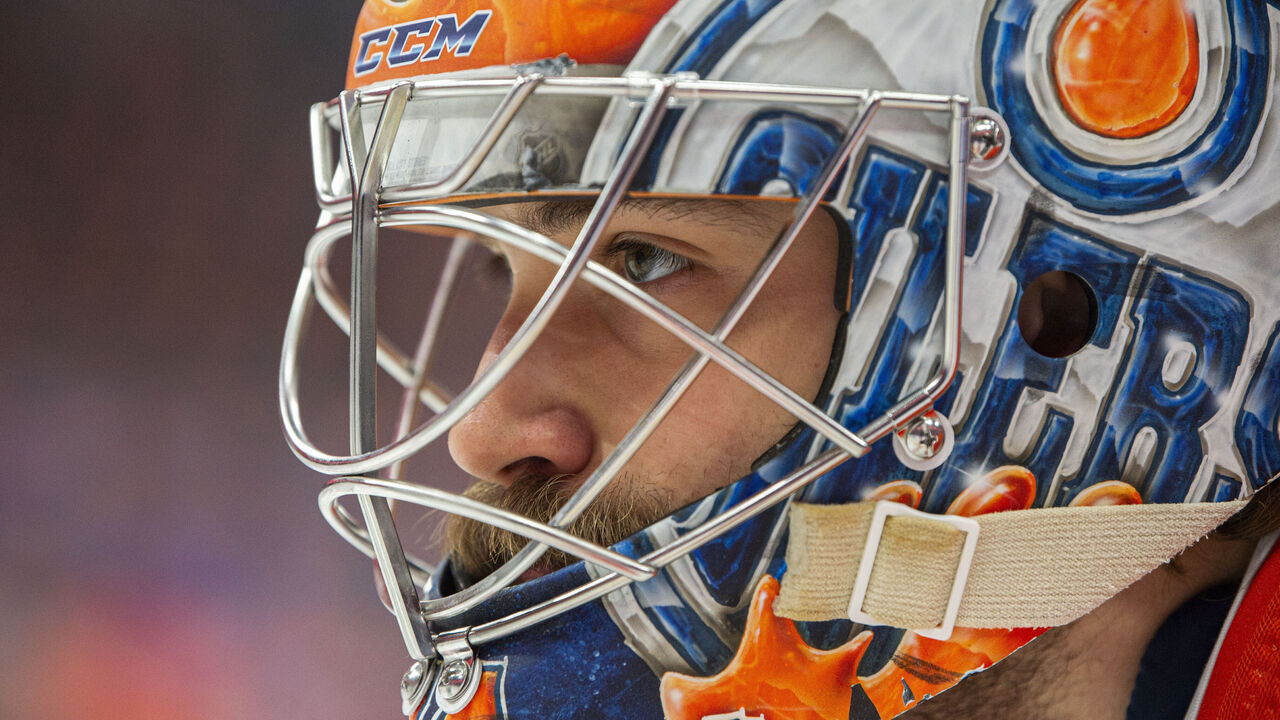
If you were to poll 10 scouts about the two starting goalies, most would likely say they'd rather have Sergei Bobrovsky on their team.
Bobrovsky is a two-time Vezina Trophy winner with a .906 save percentage in 87 career playoff games. This is his second straight final appearance. Stuart Skinner has significantly less experience and a blah .891 save percentage in 28 playoff games.
Nevertheless, there's a decent chance Skinner - who's fresh off an impressive third round - outshines Bobrovsky in this best-of-seven set. Bobrovsky will be facing an attack that could very well exploit his biggest weakness. The league-average save percentage on shots off the rush is .871. Bobrovsky's mark is .789, having allowed 12 goals off the rush. Edmonton's terrifying in transition.
Will Oilers PP, PK both dominate?
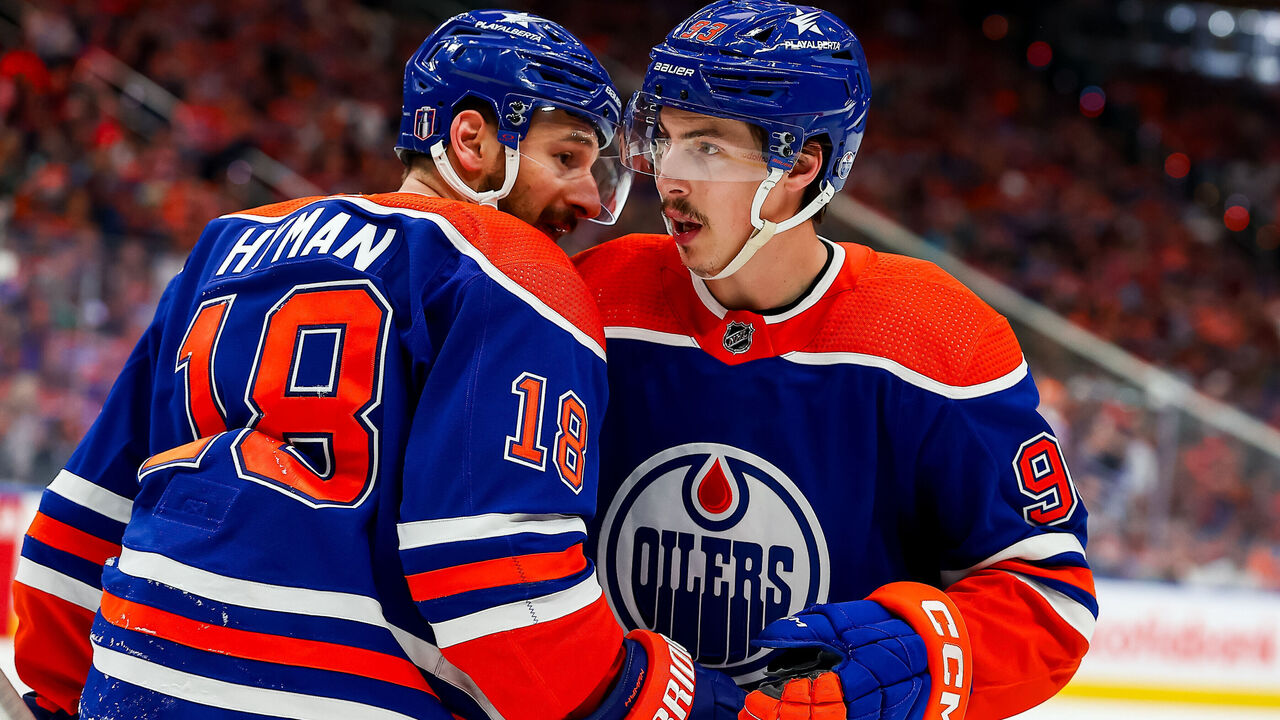
The Oilers' special teams are unreal. Among clubs that won a round, crossing a minimum threshold for games played, they rank in the top five in both categories going back nearly 50 years.
On the power play, Edmonton's preferred combination scores from every angle and distance. McDavid, Hyman, Nugent-Hopkins, Leon Draisaitl, and Evan Bouchard are responsible for 18 of 19 Oilers PP goals. In Game 6 against Dallas, McDavid's dangling set up his own brilliant backhand tally and Hyman's snipe to the top shelf.
Suddenly impenetrable, Edmonton's penalty kill is 46-for-49. It blanked the Kings and Stars and hasn't been beaten since Game 3 of the Canucks matchup. The Oilers are the third playoff team since the dawn of the Original Six era to compile a 10-game kill streak, per Stathead. Dallas was frazzled by the puck pressure Edmonton forwards applied.
The Panthers have two reasons to be hopeful. Their own stellar PK has tied opponents 2-2 in Barkov's shifts (he scored shorthanded in Round 1 and assisted on another in Round 2). They're also adept at drawing penalties - Barkov, Tkachuk, and Lundell all rank in the top 10 league-wide - and could stockpile enough PP opportunities to finally beat Skinner.
Will Verhaeghe come through again?
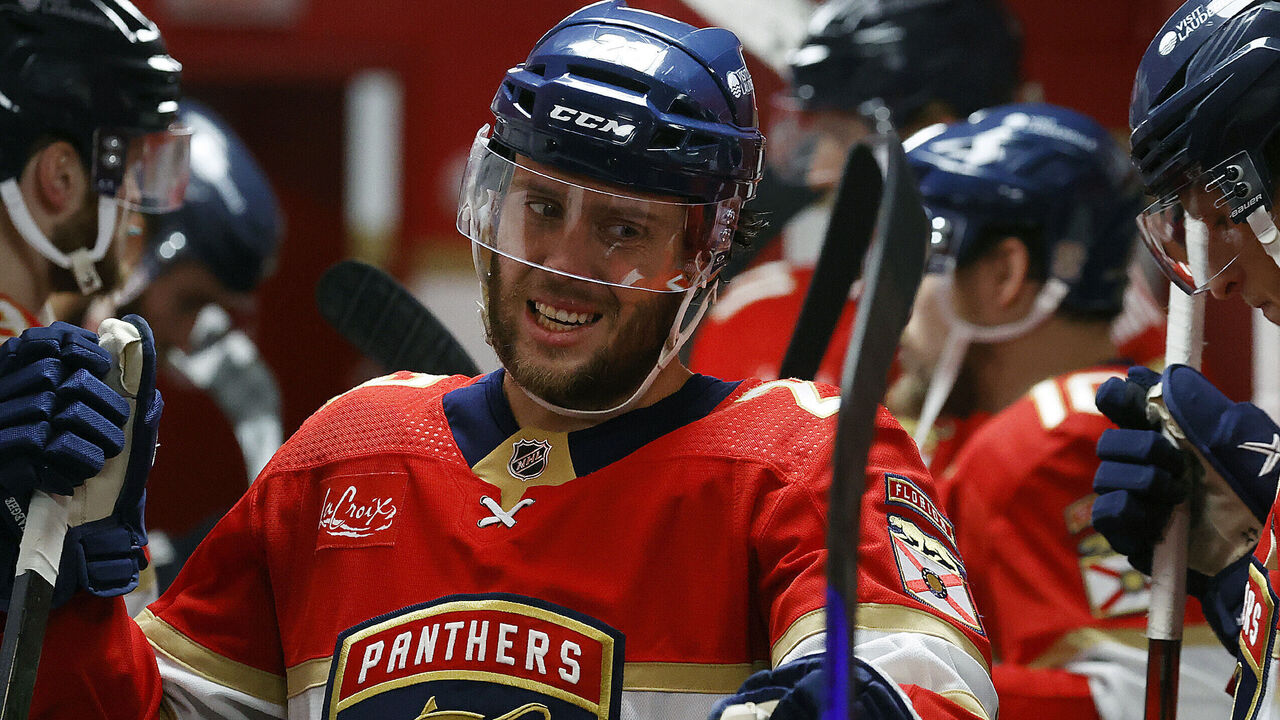
Carter Verhaeghe is one of the top stories of the final. A 2013 third-round pick of the Maple Leafs, he spent the first four seasons of his pro career in the ECHL and AHL. He found stability after signing a two-year, $2-million deal with Florida in 2020 - and he's been dynamite in the postseason ever since.
Through 17 games this year, Verhaeghe leads the club with nine goals and is second with 17 points. He's third among all playoff skaters with 42 slot shots, according to Sportlogiq. A good chunk of those have featured the speedster unleashing his patented wrist shot from the left faceoff circle.
Verhaeghe, 28, scored the overtime goal in Game 3 of last year's Cup Final. It was his lone goal in five games against Vegas and the Panthers' sole victory. Florida needs its not-so-secret weapon to lead the charge against the Oilers.
Will Bouchard control games?
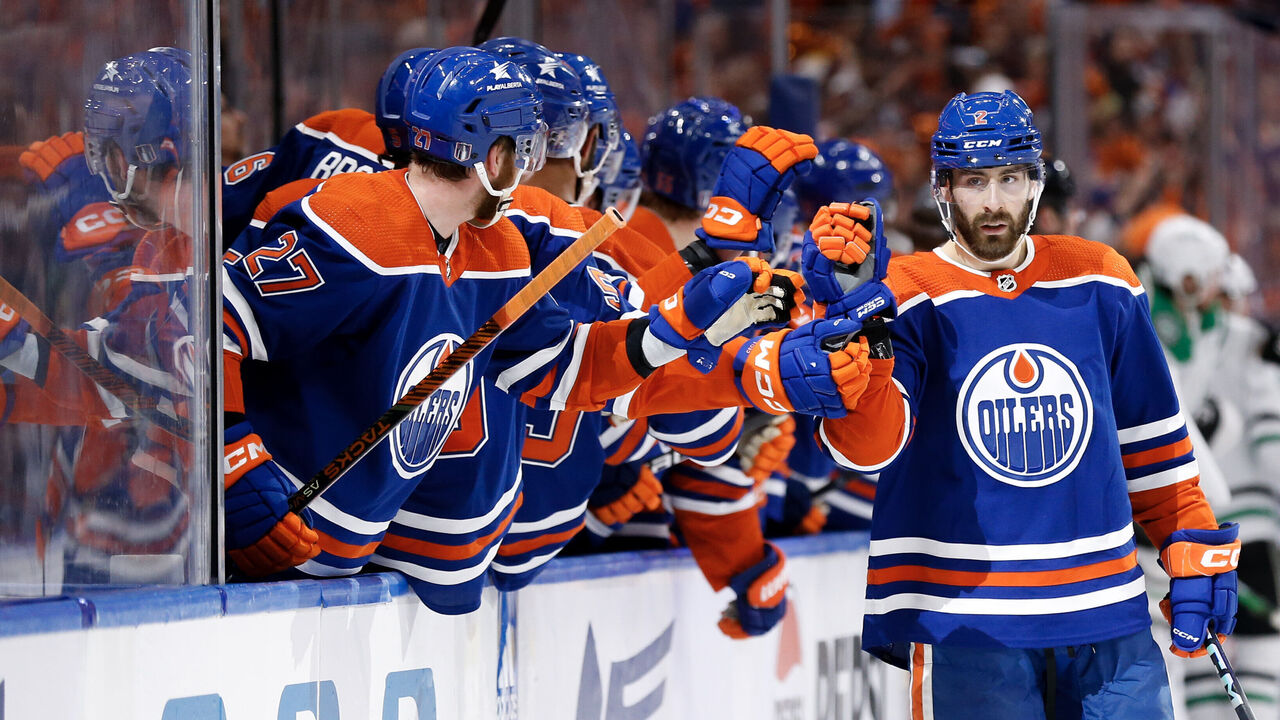
Over four NHL seasons, Bouchard's evolved from frequent scratch to supplemental piece to scoring weapon to two-way force. The young defenseman's growth, stimulated by his partnership with Mattias Ekholm, differentiates these Oilers from versions of the squad that fell in earlier rounds.
Bouchard and Ekholm have crushed stiff opposition all spring. Edmonton has outscored foes 18-9 and owned 63% of dangerous scoring chances in their 298 joint five-on-five minutes, the NHL high. No top pair spends more time buzzing in the offensive zone and less time chasing the puck.
Bouchard's 30th point (he enters the final with 27) will set a new high for defensemen this century. He's no longer a power-play merchant, though his confident quarterbacking and heavy slap shot boost Edmonton's main unit. His even-strength output in these playoffs puts him in prime company.
Is Florida's forward depth untouchable?
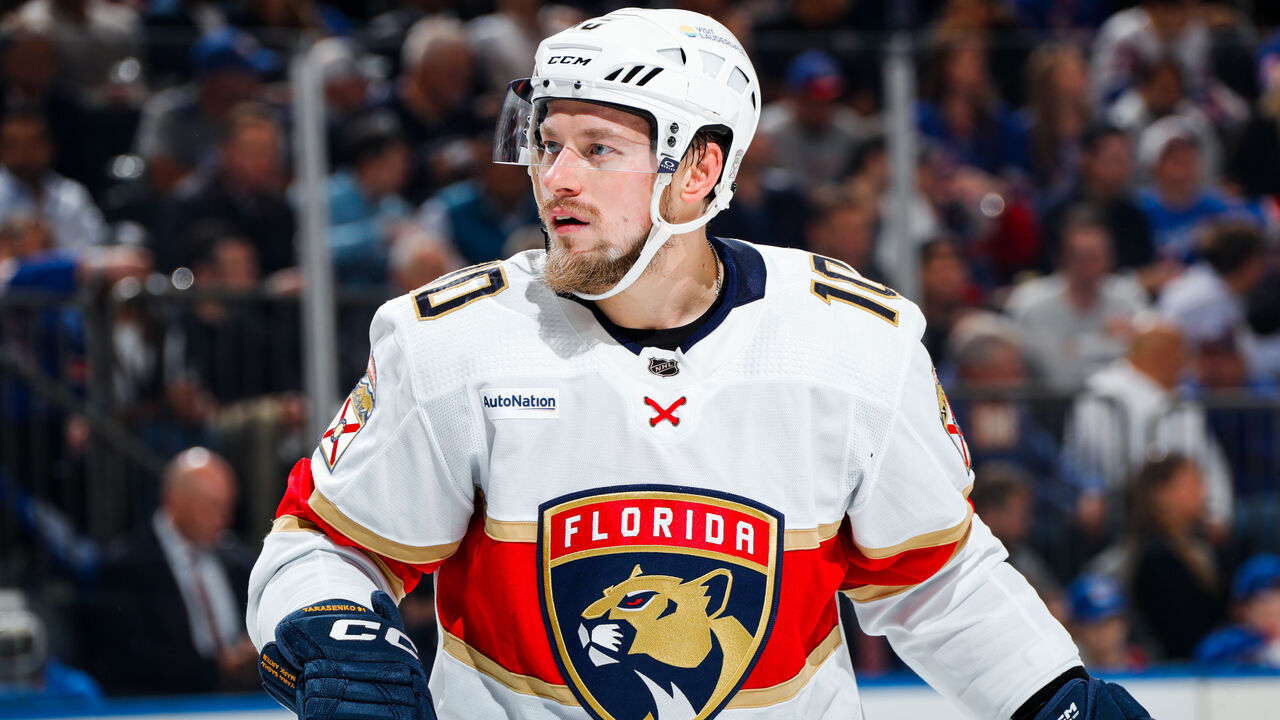
Florida's talented third line, which combines grit, vision, and a killer finishing instinct, united against the Rangers to net the series clincher. Lundell's shot block led to a clearance, Eetu Luostarinen forechecked to force a giveaway, and Vladimir Tarasenko accelerated to the crease to bury Lundell's feed.
Swapping two mid-round draft picks for Tarasenko enhanced Florida's depth. The veteran sniper was the seventh Panthers forward to score a postseason game-winner. Lower in the lineup, the Panthers have more stingy or energetic wingers - Steven Lorentz and Kyle Okposo displaced mainstays Nick Cousins and Ryan Lomberg - than can fit on the fourth line.
Much of Edmonton's supporting cast (Ryan McLeod, Warren Foegele, Derek Ryan, Corey Perry) has been absent offensively in the playoffs. Only two depth forwards (Connor Brown and Adam Henrique) chipped in multiple points against the Stars. The murky injury status of Evander Kane, who's stuck in a seven-game goal drought, doesn't inspire confidence that he can solve this outage.